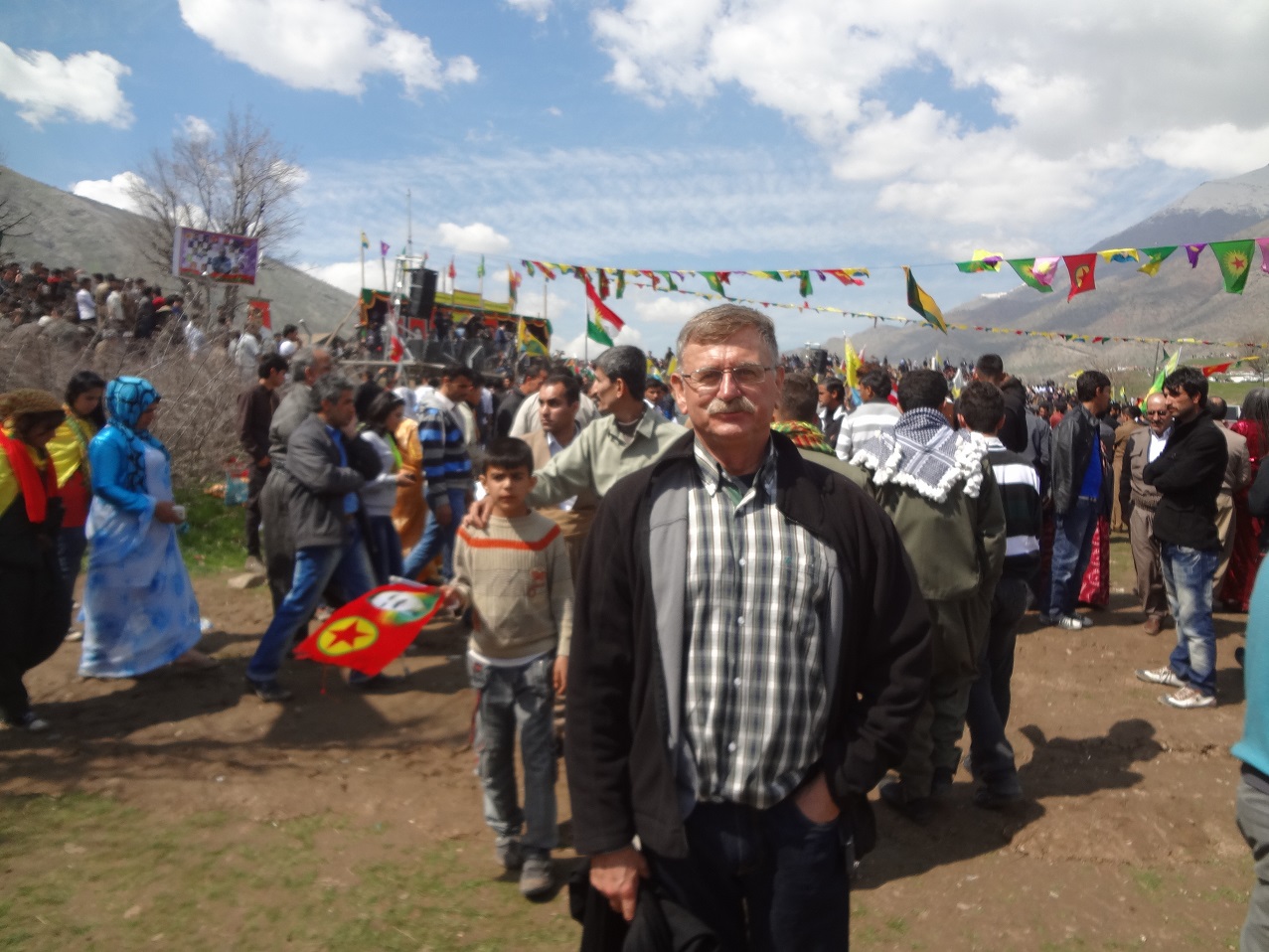 On the Friday of Nawroz, the PKK (Kurdish Workers Party) hold a rally/concert deep in the Qandille Mountains in north east Iraq. Like much travel here, even a relatively short trip can take on epic proportions especially during Nawroz. I had been invited by my friend Hersh, the news editor from Kurdsat who was going to the rally with a number of journalist friends. We had a 5am start and that was just getting organised to go by bus leaving around 7am. The journey was only about 125km but it took three hours and numerous stops to get there.
On the Friday of Nawroz, the PKK (Kurdish Workers Party) hold a rally/concert deep in the Qandille Mountains in north east Iraq. Like much travel here, even a relatively short trip can take on epic proportions especially during Nawroz. I had been invited by my friend Hersh, the news editor from Kurdsat who was going to the rally with a number of journalist friends. We had a 5am start and that was just getting organised to go by bus leaving around 7am. The journey was only about 125km but it took three hours and numerous stops to get there.
The PKK actually hold territory here and the bus driver solemnly announced that we were leaving the jurisdiction of the KRG and were now under control of the PKK. The road then wound along a narrow mountain valley before zigzaging up an extremely steep series of switch backs to a high pass and then dropping down into an open alpine valley surrounded by spectacular mountains.
Nawroz is an opportunity for the PKK troops to come together from Turkey, Iran and Iraq and for families to come and meet the fighters. It is also a chance for the local Kurdish population to show support.
 In reality the PKK belongs to the past. Local support is surprisingly strong, but more out of loyalty, than to any belief in a Communist philosophy. For many Kurds it was the PKK who stood up and kept fighting through the grimmest times, and they are not people to forget the past. There is an enduring admiration for the imprisoned Kurdish leader Abdullah Ocalan, though hearing him being constantly referred to as the Kurdish Nelson Mandela became a bit tiring.
In reality the PKK belongs to the past. Local support is surprisingly strong, but more out of loyalty, than to any belief in a Communist philosophy. For many Kurds it was the PKK who stood up and kept fighting through the grimmest times, and they are not people to forget the past. There is an enduring admiration for the imprisoned Kurdish leader Abdullah Ocalan, though hearing him being constantly referred to as the Kurdish Nelson Mandela became a bit tiring. That said I was surprising that the majority of fighters were very young and over half are women. I had seen many photos of women PKK guerrillas, but assumed that they were just publicity shots. Well aware of the opportunity for publicity and support, the PKK members were more than happy to pose for photos with all and sundry.
A key drawcard that day was the appearance of a famous Kurdish singer Chaupi, but even with her support, the crowd was down from previous years and at most would have numbered around 5000 - 6000. The crowd noticeable thinned once Chaupi left the stage.
As with every Nawroz festivity the symbolic fire was lit, rousing speeches were made, flags waved, banners hoisted and endless signs of victory made.

Then of course was the grueling bus journey home. We were supposed to leave at 4.30pm but the driver didn't turn up until well after 6pm. Wending our way through clogged roads, I finally arrived back in Slemani after midnight. Just as well the next day was a holiday. I was shattered, but being exhausted is the whole point of a Kurdish day out.




.JPG)






No comments:
Post a Comment